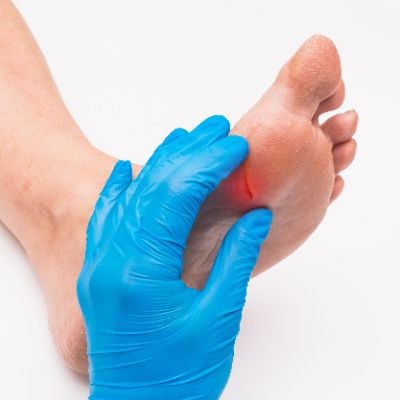 In the intricate tapestry of managing diabetes, caring for your feet is a crucial aspect that demands attention. This article navigates the essential diabetic foot care guidelines, offering a comprehensive understanding of preventive measures, symptoms to watch for, and proactive strategies to maintain optimal foot health.
In the intricate tapestry of managing diabetes, caring for your feet is a crucial aspect that demands attention. This article navigates the essential diabetic foot care guidelines, offering a comprehensive understanding of preventive measures, symptoms to watch for, and proactive strategies to maintain optimal foot health.
The Importance of Diabetic Foot Care
Grasping the Significance
Understanding why diabetic foot care is paramount and how diabetes can impact the health of your feet, potentially leading to severe complications.
Prevalence of Diabetic Foot Complications
Highlighting the prevalence of foot-related issues in individuals with diabetes and the need for proactive care to prevent complications.
Preventive Measures
Daily Foot Inspections
Guidelines on incorporating daily foot inspections into your routine, empowering individuals to identify potential issues early.
Choosing Appropriate Footwear
Educating readers on the importance of selecting comfortable, well-fitting shoes to minimize the risk of friction and pressure points.
Proper Nail Care
Offering insights into the significance of proper nail care, emphasizing the avoidance of ingrown toenails and the importance of regular trimming.
Managing Moisture and Hydration
Dry Skin Prevention
Exploring the role of moisturization in preventing dry skin, cracking, and fissures that can lead to infections.
Importance of Hydration
Stressing the correlation between adequate hydration and skin health, with practical tips on maintaining proper moisture levels.
Recognizing Warning Signs
Neuropathy Awareness
Educating readers about diabetic neuropathy, its impact on foot sensation, and the importance of regular neuropathy assessments.
Identifying Changes in Skin Color and Temperature
Guidelines on recognizing changes in skin color and temperature as potential indicators of circulation issues.
Addressing Swelling and Inflammation
Insights into the causes of swelling and inflammation in the feet and proactive measures to address these symptoms.
Strategies for Wound Prevention
Cuts and Abrasions
Highlighting the increased risk of cuts and abrasions in individuals with diabetes and providing strategies for prevention.
Callus Management
Guidelines on the safe management of calluses, emphasize the importance of professional intervention for removal.
Seeking Professional Care
Regular Podiatric Check-ups
Stressing the importance of regular podiatric check-ups for individuals with diabetes to detect and address potential issues early.
Timely Intervention
Encouraging prompt professional intervention in case of any foot issues, emphasizing the principle of "better safe than sorry."
Lifestyle Modifications
Maintaining a Healthy Lifestyle
Exploring the broader impact of overall health on diabetic foot care, including the role of diet, exercise, and blood sugar management.
Smoking Cessation
Highlighting the adverse effects of smoking on foot health and encouraging individuals with diabetes to quit smoking.
Conclusion
In conclusion, diabetic foot care is a multifaceted aspect of diabetes management that demands attention and diligence. By adhering to the outlined guidelines, individuals can empower themselves to proactively care for their feet, minimizing the risk of complications and ensuring a foundation of robust foot health. Incorporating these practices into daily life not only enhances overall well-being but also contributes to a proactive and informed approach to diabetes management. Remember, the journey towards healthy feet begins with a single step – a step towards comprehensive diabetic foot care.
Disclaimer:
The information on this website is provided for educational and information purposes only and is not medical advice. Always consult with a licensed medical provider and follow their recommendations regardless of what you read on this website. If you think you are having a medical emergency, dial 911 or go to the nearest emergency room. Links to other third-party websites are provided for your convenience only. If you decide to access any of the third-party websites, you do so entirely at your own risk and subject to the terms of use for those websites. Neither Evanston Foot and Ankle Clinic, nor any contributor to this website, makes any representation, express or implied, regarding the information provided on this website or any information you may access on a third-party website using a link. Use of this website does not establish a doctor-patient relationship. If you would like to request an appointment with a health care provider, please call our office at (847) 864-5010.



